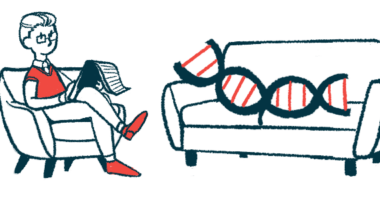FDA moves to support TSHA-102, potential Rett gene therapy
RMAT status given treatment, now in enrolling Phase 1/2 clinical trials

The U.S. Food and Drug Administration (FDA) has given a regenerative medicine advanced therapy (RMAT) designation to TSHA-102, an experimental gene therapy for Rett syndrome.
RMAT is given to regenerative medicines — cell therapies, therapeutic tissues, human cell and tissue products, or any combination using such therapies or products — that have the potential to treat serious diseases. Designed to speed the development and review of important new treatments, it gives TSHA-102’s developer Taysha Gene Therapies access to perks like more frequent dialogue with the FDA during the development process.
“We believe receiving RMAT designation reinforces the high unmet medical need in Rett syndrome and the therapeutic potential of TSHA-102 to change the treatment paradigm,” Sukumar Nagendran, MD, president and head of research and development at Taysha, said in a company press release.
RMAT designation, which began in December 2016 as part of the 21st Century Cures Act, “further supports the potential of our gene therapy candidate to bring meaningful change to patients and families living with Rett syndrome,” Nagendran added.
Clinical trials evaluating TSHA-102 in children and adult patients
To earn RMAT status, a therapy must have shown early clinical evidence that it’s likely to help fill unmet medical needs for patients. In TSHA-102’s case, recognition followed early findings in the first three participants given the gene therapy at a low dose in an ongoing Phase 1/2 clinical trial program called REVEAL.
Two of the patients were dosed as part of the REVEAL adult and adolescent study (NCT05606614). Both appear to have tolerated the therapy well, with improvements in breathing, sleeping, social skills, and motor function, Taysha reported. The adult/adolescent study recently was given approval to start testing a higher dose.
The third patient was dosed earlier this year as part of the REVEAL pediatric study (NCT06152237). Taysha has not yet released details on this child’s experience, although the company announced in February that an independent committee gave approval to dosing a second child after reviewing available data.
“Importantly, RMAT designation was granted following the FDA’s review of safety and efficacy data from the first three patients dosed with the low dose of TSHA-102 across both of our REVEAL Phase 1/2 trials,” Nagendran said.
The adult and adolescent study, open to patients ages 12 and up, is actively enrolling at a site in Montréal, with another site in Chicago expected to open soon. The pediatric study, which includes children ages 5 through 8 and is expected to expand to patients starting at age 3, is now enrolling at its Chicago site with plans to open other sites in the U.S. and one in the U.K.
Therapy delivers shorter but functional version of the MECP2 gene to cells
In almost all cases, Rett syndrome is caused by mutations in the MECP2 gene. TSHA-102 is designed to deliver a shortened but functional version of this gene, dubbed miniMECP2, to cells in the brain. The gene therapy uses a technology called miRARE to modulate MECP2 activity, helping to ensure that the newly delivered gene stays active at about normal levels, but without the overactivity that could have toxic effects.
“We remain focused on advancing the development [of] TSHA-102 to bring a potentially disease-modifying therapy being evaluated to address the genetic root cause of Rett syndrome to all patients and families living with this devastating disease,” said Rumana Haque-Ahmed, Taysha’s chief regulatory officer.
“Receiving RMAT designation helps facilitate this goal by enabling increased dialogue with the FDA to expedite our development plan for TSHA-102,” Haque-Ahmed added. “We look forward to working closely with the FDA and other regulatory agencies as we continue to advance our TSHA-102 program.”
The potential Rett gene therapy also has been designated an orphan drug in the U.S. and the European Union, and placed on a fast track by the FDA, statuses intended to further support and speed its development, Taysha reports.







